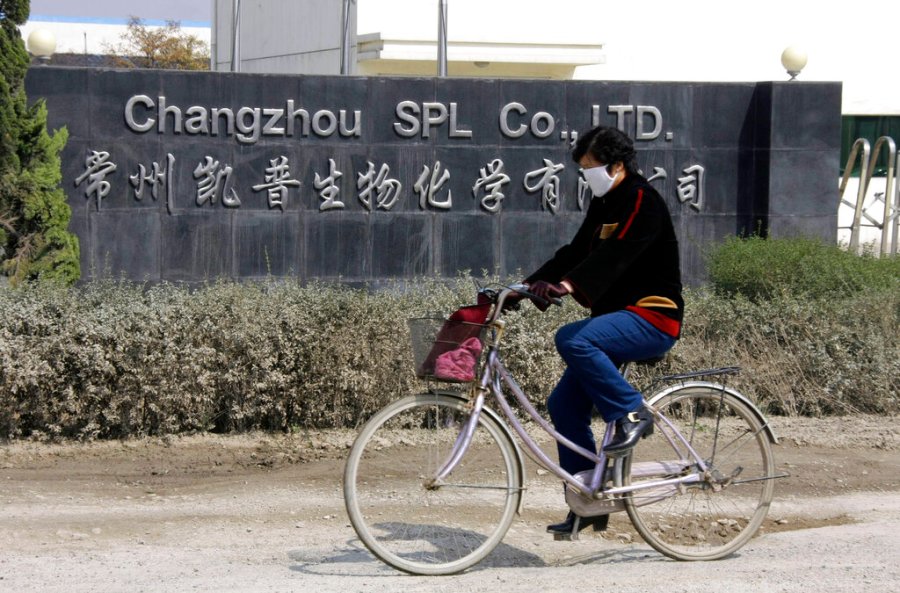Health
U.S. Faces Health Crisis from Over-Reliance on Foreign Drugs

The reliance on foreign-made generic drugs is raising significant health concerns in the United States. Reports indicate that over 100 individuals have lost their lives due to contaminated doses of Chinese-manufactured Heparin, highlighting a critical vulnerability in the nation’s healthcare system. The situation has prompted calls for an urgent review of the regulatory measures in place to ensure drug safety and quality.
Concerns Over Drug Quality and Safety
The U.S. Food and Drug Administration (FDA) has faced criticism for its oversight of the pharmaceutical industry, particularly regarding the influx of generic drugs produced outside the country. The FDA’s methods for inspecting and regulating these products have been deemed insufficient, which has contributed to the ongoing crisis. The agency is tasked with guaranteeing that medications available in the U.S. meet specific safety and quality standards; however, recent incidents have revealed significant gaps in this system.
The case of Heparin is particularly alarming. This anticoagulant, used widely in hospitals, has been linked to severe complications and fatalities when contaminated. According to FDA reports, the contamination issues are primarily associated with Heparin sourced from China, where regulatory practices differ significantly from those in the U.S. As a result, healthcare providers have raised concerns about the risks of using foreign-manufactured medications.
The Impact on National Security
Beyond health implications, the reliance on foreign generic drugs poses a broader threat to national security. The pharmaceutical supply chain’s vulnerability could potentially be exploited, leading to shortages or compromised products during crises. Experts argue that a more robust domestic production strategy is necessary to mitigate these risks and ensure that Americans have access to safe medications.
The issue of drug safety has gained attention from lawmakers, who are calling for reforms. A bipartisan coalition is advocating for increased funding and resources for the FDA to enhance its inspection capabilities and oversight of foreign manufacturers. The aim is to bolster the integrity of the drug supply chain and minimize the health risks associated with contaminated or substandard products.
In light of these developments, it is crucial for policymakers to address the systemic issues that have allowed the current situation to persist. Ensuring the safety and quality of medications is not only a matter of public health but also a key component of national security. The recent deaths related to contaminated Heparin serve as a stark reminder of the consequences of neglecting this vital aspect of healthcare.
As the U.S. grapples with these challenges, it is imperative to prioritize solutions that protect the health of its citizens and safeguard the integrity of the pharmaceutical supply chain. The urgency of the situation calls for immediate action to prevent further tragedies and restore confidence in the safety of medications available to the public.
-

 Lifestyle5 months ago
Lifestyle5 months agoLibraries Challenge Rising E-Book Costs Amid Growing Demand
-

 Sports4 months ago
Sports4 months agoTyreek Hill Responds to Tua Tagovailoa’s Comments on Team Dynamics
-

 Sports5 months ago
Sports5 months agoLiverpool Secures Agreement to Sign Young Striker Will Wright
-

 Lifestyle5 months ago
Lifestyle5 months agoSave Your Split Tomatoes: Expert Tips for Gardeners
-

 Lifestyle5 months ago
Lifestyle5 months agoPrincess Beatrice’s Daughter Athena Joins Siblings at London Parade
-

 Science4 months ago
Science4 months agoSan Francisco Hosts Unique Contest to Identify “Performative Males”
-

 World4 months ago
World4 months agoWinter Storms Lash New South Wales with Snow, Flood Risks
-

 Science5 months ago
Science5 months agoTrump Administration Moves to Repeal Key Climate Regulation
-

 Business5 months ago
Business5 months agoSoFi Technologies Shares Slip 2% Following Insider Stock Sale
-

 Science5 months ago
Science5 months agoNew Tool Reveals Link Between Horse Coat Condition and Parasites
-

 Sports5 months ago
Sports5 months agoElon Musk Sculpture Travels From Utah to Yosemite National Park
-

 Science5 months ago
Science5 months agoNew Study Confirms Humans Transported Stonehenge Bluestones









